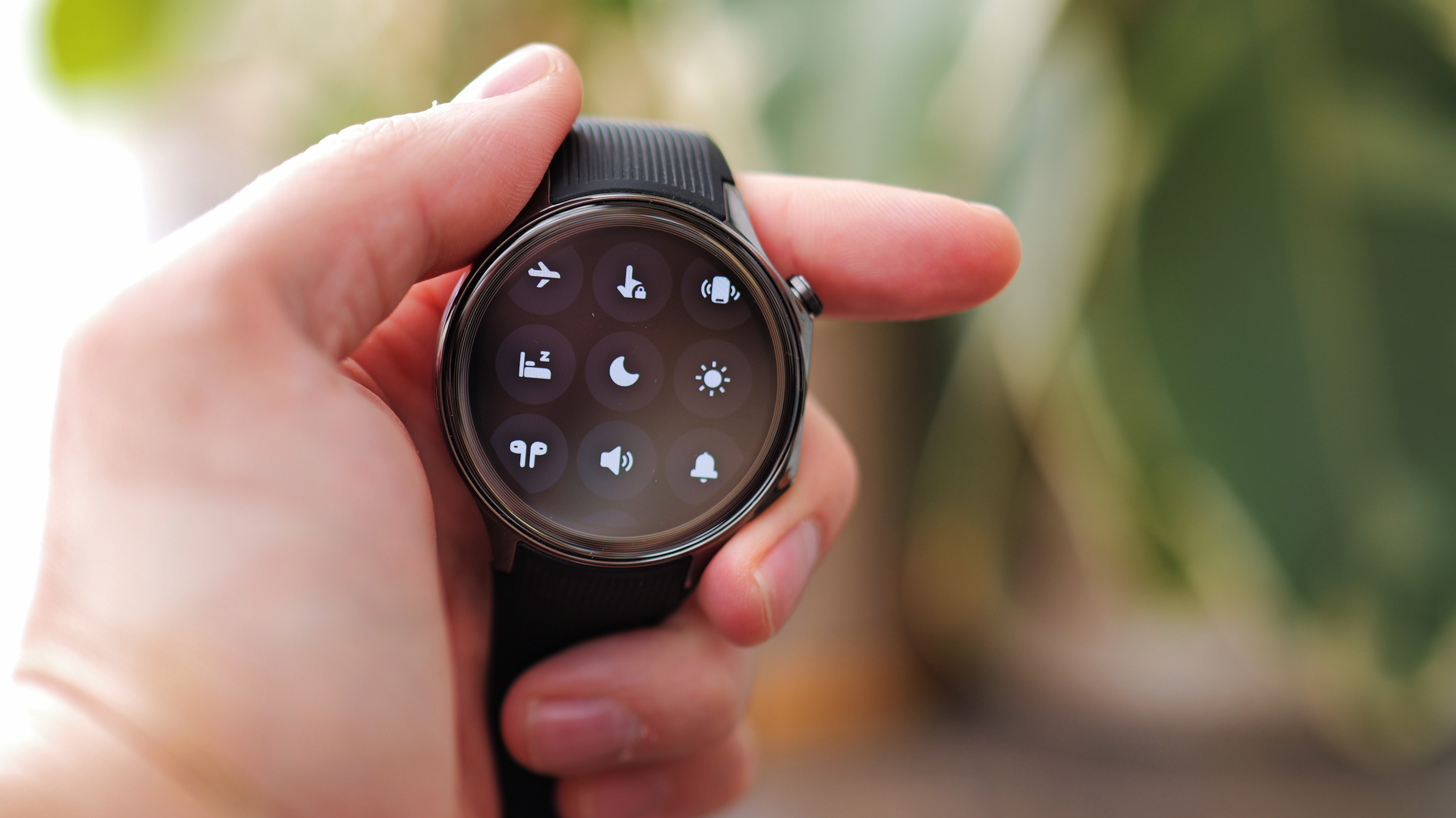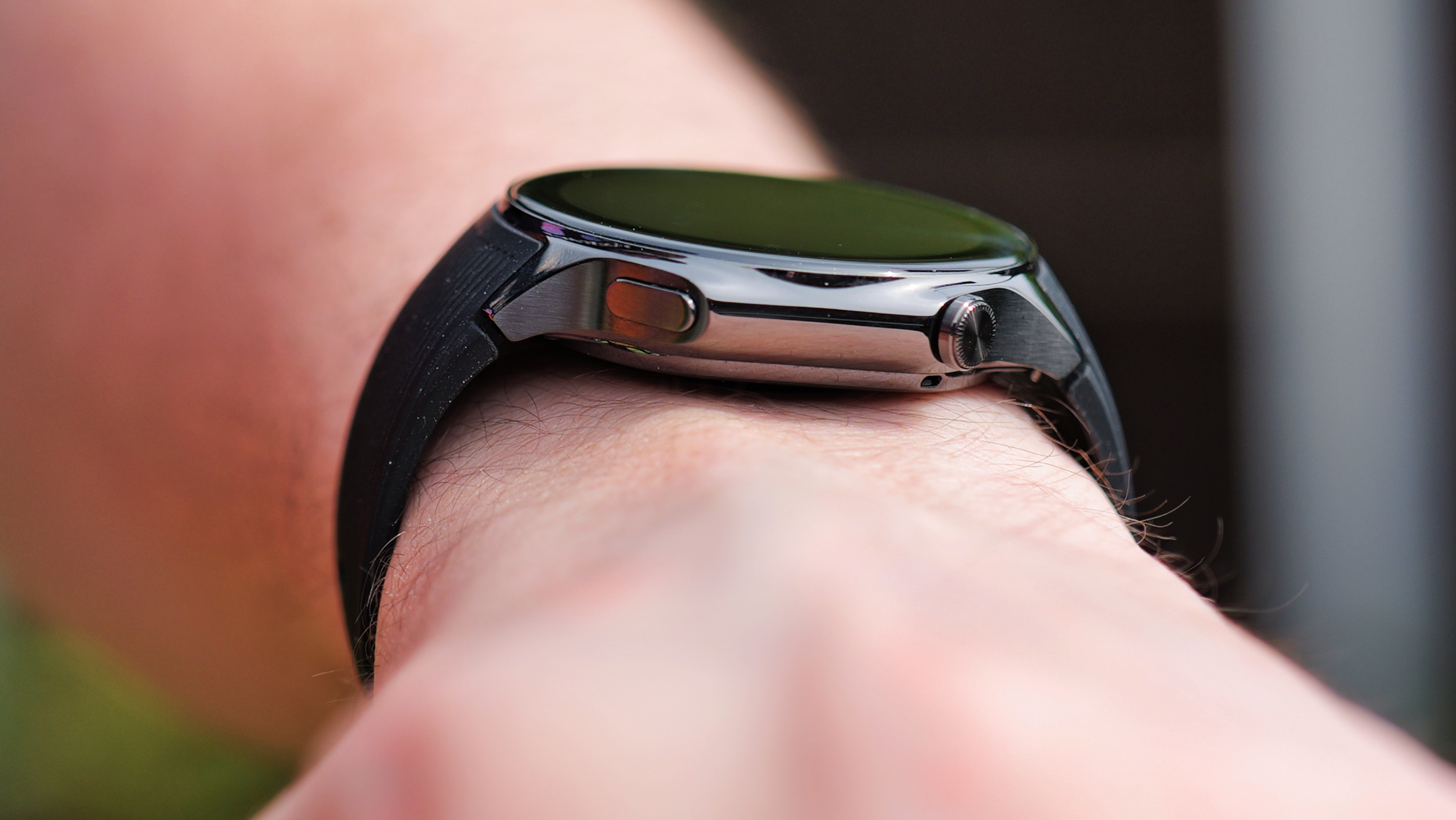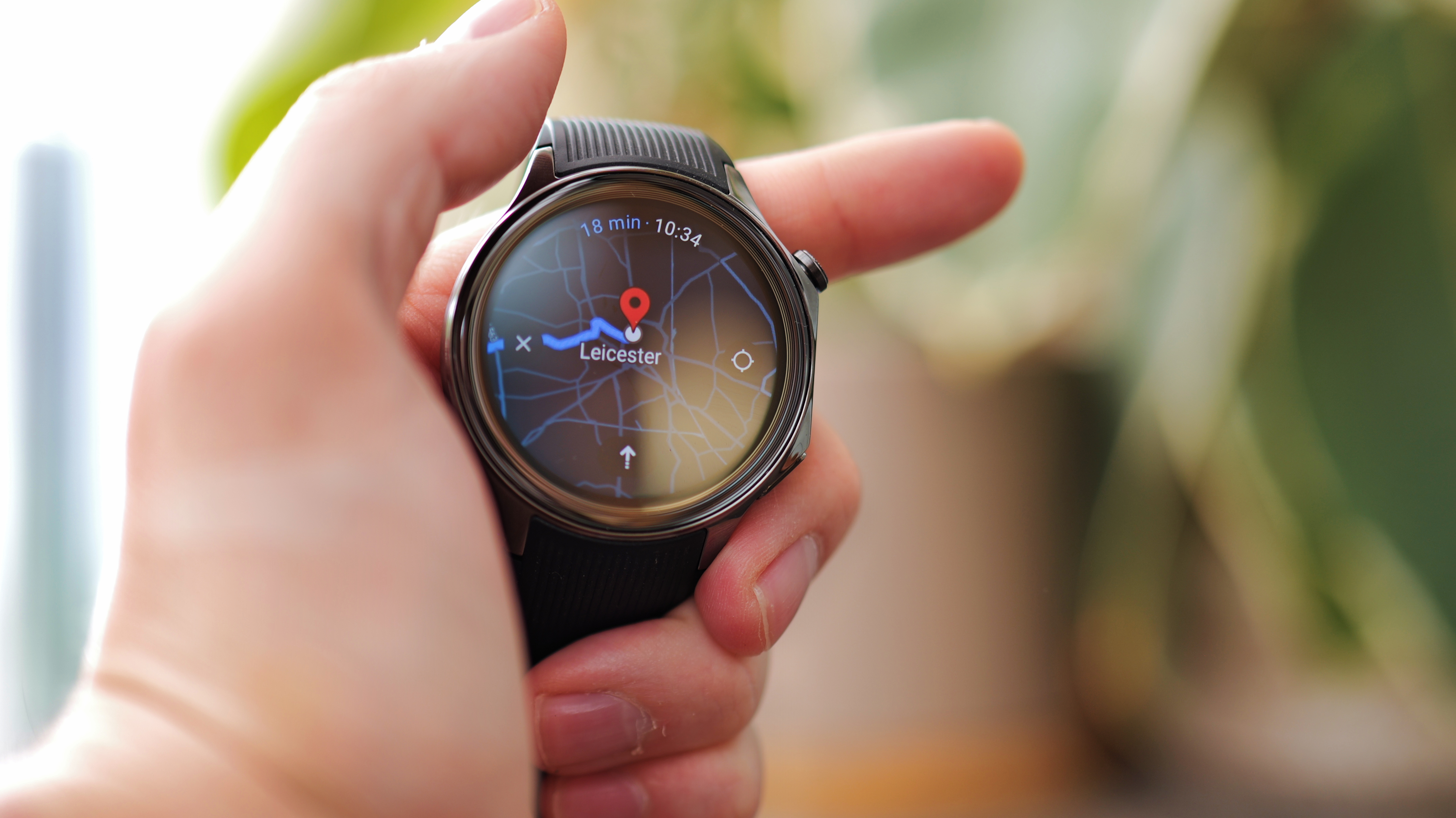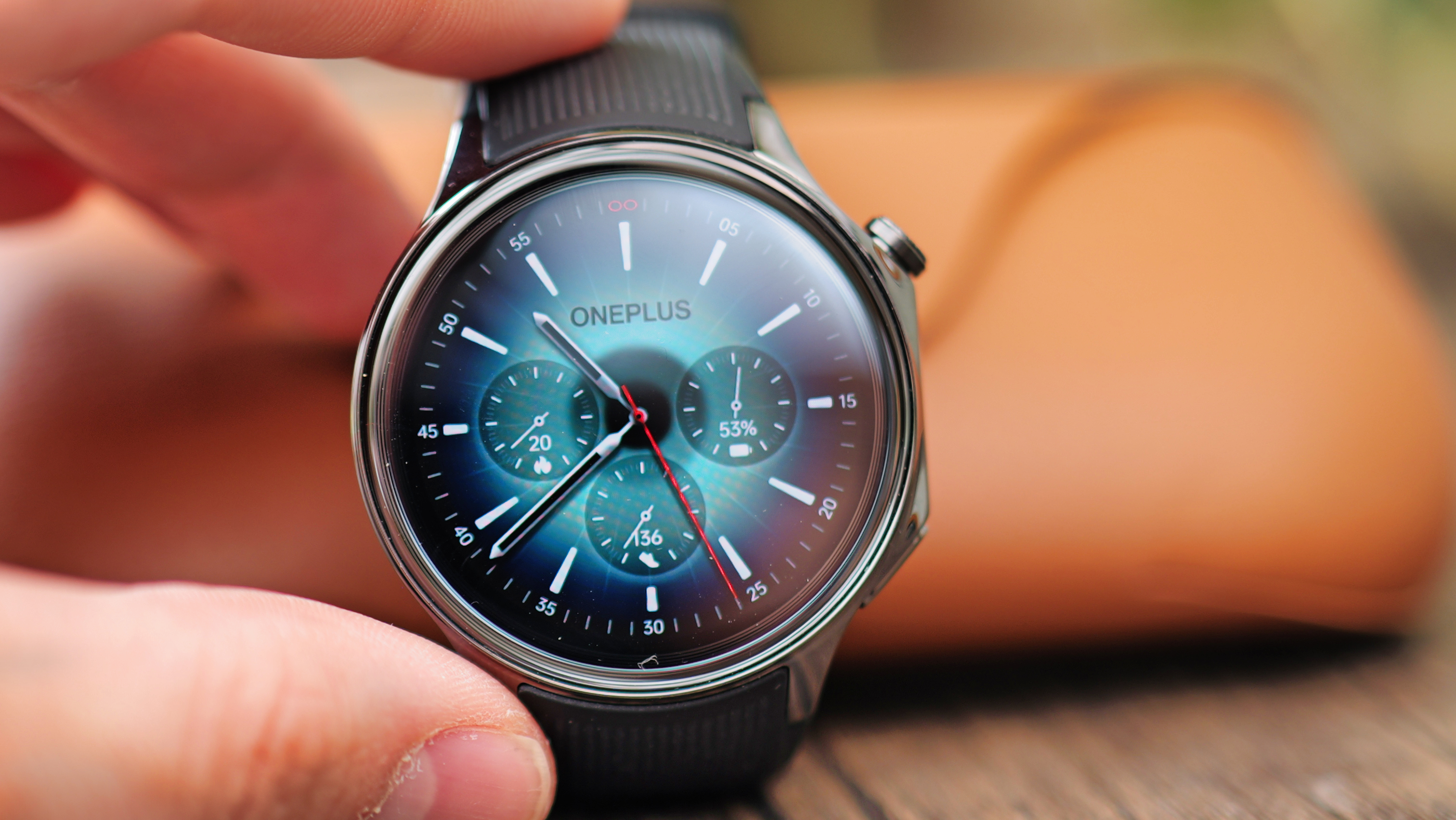OnePlus Watch 2 review: Finally, a Wear OS watch with staying power
OnePlus Watch 2: One minute review
After a less-than-stellar introduction to the world of smartwatches with the original OnePlus Watch in 2021, OnePlus is back with its second effort, and it’s a different beast entirely. Rather than relying on its own software, OnePlus’ latest wearable uses Google’s Wear OS platform to deliver a comprehensive set of features that will satisfy even the most demanding user.
Anyone who’s familiar with Wear OS will know that poor battery life is its biggest hurdle, and OnePlus manages to leap right over it with an ingenious solution. This watch has two processors and two operating systems working in tandem, one handles all the basic functions like telling the time and counting steps, while the other tackles the more complex stuff. Depending on your usage, you really can achieve 100 hours on a single charge.
The OnePlus Watch 2 offers a tasteful design, but its large dimensions mean that it’s less suited to those with petite wrists. It feels quality throughout, but I can’t help but wish for a functional rotating crown. This one can be rotated, but it doesn’t do anything. It’s just a circular button.
When it comes to features and performance, I have no complaints whatsoever. Fitness tracking data seems accurate, it pairs easily and remains connected to your phone, and the Wear OS ecosystem means you can install a wide variety of applications to achieve all sorts of tasks. I managed three days on a charge with the always-on display enabled, too.
As it stands, I think it’s one of the most compelling Wear OS options available today, and certainly one of the best smartwatches outside of Apple. It’s reasonably priced, well-designed, feature-packed and lasts for a long time. What more could you need?
OnePlus Watch 2: Specifications
OnePlus Watch 2: Price and Availability

- £299 in the UK
- $299.99 in the US
- AU$459 in Australia
The OnePlus Watch 2 is available to purchase now globally with an MSRP of $299.99 / £299 / AU$459. It originally launched in Black Steel and Radiant Steel, but a Nordic Blue variant was introduced more recently in Europe, too. The specs and features are the same across all variants, it’s only the colour of the chassis and strap that changes.
The OnePlus Watch 2 is very reasonably priced compared to its Wear OS rivals. The Pixel Watch 2, TicWatch Pro 5 and Galaxy Watch 5 Pro are all slightly more expensive at full retail, but frequent discounts mean that they can be found at similar prices.
- Value score: 4/5
OnePlus Watch 2: Design and screen

- 1.43-inch AMOLED display
- Steel chassis with sapphire crystal face
- Black Steel, Radiant Steel and Nordic Blue options
The OnePlus Watch 2 immediately gives the impression of quality, it's dense, heavy and shiny, as you’d expect a high-end watch to be. However, the downsides to this design are immediately apparent, too: it’s a big, thick watch, and it’s only available in a single 46mm case size. This means it’s not going to be for everyone. I’m a big guy, and even on my wrists it felt a little large and heavy; I can certainly imagine it looking ridiculous on those with slim wrists.
The OnePlus Watch 2 is mostly circular, but it has a flat edge on the right-hand side. The buttons are offset at an angle, which means they’re never accidentally pressed by the back of your hand when you lean on a table. It’s a thoughtful touch.
OnePlus says the design is inspired by classic stopwatches, but it equally reminds me of the camera surround on the OnePlus 12, it’s a nice bit of design synergy if you happen to own both. On the whole, though, I think it’s lacking in personality. There’s nothing wrong with the design, it just doesn’t do much to stand out, either.
The uppermost button is circular and sticks out from the main body, like a watch crown. However, while it can be rotated, rotating it doesn’t do anything, it’s just a normal button. I found this a bit disappointing, most of the Watch 2’s competitors have functional crowns, and even the budget-oriented Huawei Watch Fit 3 manages to include one.
The display has an ample 466 x 466 resolution and it’s bright enough that I never had trouble seeing it in direct sunlight. The bezels are fairly chunky, but a selection of predominantly dark watch faces do a great job of disguising this. The screen is coated with sapphire crystal and has a hardness rating of 8+ Mohs, which essentially means that it’s highly scratch-resistant. After wearing it for a few weeks, the glass is still spotless (despite taking a few knocks).
The watch also has a MIL-STD 810H rating for durability, and it's completely waterproof up to 5ATM. So, no matter how adventurous your lifestyle may be, the OnePlus Watch 2 should be up to the task.
- Design score: 3.5/5
OnePlus Watch 2: Features

- 32GB of onboard storage
- Great flexibility with Wear OS apps
- Over 100 built-in exercise modes
Since the Watch 2 runs Wear OS, it integrates seamlessly with all of Google’s services like Google Calendar, Google Fit, Google Wallet, Maps and more. As someone who relies on Google for most of my digital life, it’s blissful not having to manually link any of these services.
The other big advantage of Wear OS is that it has an app store. As an example, I like to track my rides using Strava. Most watches will require a (sometimes complex) linking process to share data with Strava, but on the OnePlus Watch 2 you just tap the Play Store, install Strava, and you’re ready to track.
It’s not just fitness stuff that you’ll find here either. You can find all manner of functionalities on Wear OS: I love having the ability to control my smart lights from my watch using Google Home or IFTTT, for example. That’s the kind of function that proprietary operating systems struggle with, but Wear OS handles like a breeze.
The downside to this system is usually the battery drain. Wear OS is a notoriously demanding smartwatch platform, and Wear OS watches with multi-day battery life are few and far between. Brands have tried various techniques to get around this, the TicWatch Pro 5’s dual-layer low-power display is a great example, but none are quite as seamless as the OnePlus Watch 2’s approach.
This watch is essentially two watches in one, and that’s probably why it’s so chunky. It has a Snapdragon W5 to run Wear OS and all the smart bits, while a low-power BES2700BP chip and RTOS system runs all the basics, like telling the time and capturing health data. The watch switches between the two systems depending on what you ask it to do, so you get all the features, without the usual battery woes. It’s a brilliant workaround.
You get 32GB of storage built in, ample space for offline Spotify listening if you want to leave the phone at home. Meanwhile, the default fitness tracking application can track over 100 different types of exercise. Of course, if your favorite is missing, you can always install a different app instead.
The watch uses the OHealth Android app to pair with your smartphone, but there’s no equivalent for iOS, so iPhone users need not apply. In the app, you can check out your fitness metrics, customize your watch face and settings, and start tracking a workout. It’s a little barebones, but I don’t think that’s a bad thing. It keeps everything simple, and if you want to do something more advanced, you can do that on the watch itself.
- Features score: 4/5
OnePlus Watch 2: Performance

- Up to 100 hours of battery life
- Heart rate, sleep, stress and SpO2 monitoring
- Multi-band GPS tracking
The big thing that sets this watch apart is its battery life. I like to use my smartwatches with everything enabled, and the always-on display active, essentially the worst-case scenario for battery life. Even still, I was able to manage around three days per charge when I wasn’t using GPS, and around two days when I was.
If you’re fine with raise-to-wake, and maybe disable some of your more frequent notifications, then you’ll be able to achieve much longer. Kick it into power-saving mode and you can go 12 days between charges, and you’ll still get notifications and track your steps and heart rate, too. Of course, the more advanced features are disabled in this mode.
When it’s time to charge, it's done with a magnetic puck that attaches to the watch with some pogo pins. It’s a nice, compact unit with a removable USB-C cable, I found it much nicer to travel with than a lengthy proprietary cable. Wireless charging support would have been even nicer, though.
The connection between my phone and the OnePlus Watch 2 was rock-solid throughout my testing. Notifications came through reliably and quickly, and if I left the phone somewhere and came back to it, the two devices would reconnect without any hiccups.
It’s hard to gauge the accuracy of the watch’s many fitness sensors, but the readings I got were in line with most of my other wearables. The step count was continually a little higher than my phone’s built-in pedometer, but much of that can be attributed to leaving my phone at my desk as I get up and run errands. Heart rate readings matched those that I’m used to seeing from my TicWatch Pro 5, too.
The watch can track your sleep habits, too. The metrics include everything from sleep stage breakdowns to heart rate changes and even breathing patterns. I hate sleeping in a watch, especially one as chunky as this, but I was on a couple of overnight flights during my testing and managed to capture some data. I did, in fact, not get much sleep, as the watch kindly reminded me.
- Performance score: 4.5/5
OnePlus Watch 2: Scorecard
OnePlus Watch 2: Should I buy?
Buy it if...
Don't buy it if...
OnePlus Watch 2: How we tested
Our reviewer wore the OnePlus Watch 2 as his primary smartwatch for over two weeks, and it accompanied him on some international travels and during regular workouts. It was paired to a Vivo X100 Pro for the majority of the testing period but was also tried with the Huawei Pura 70 Ultra.
The tracking results were compared to historical results from the Huawei Watch Fit 3 and TicWatch Pro 5, as well as the built-in step counter on the smartphone to assess accuracy.
OnePlus Watch 2: Also consider
First reviewed: May 2024
0 comments:
Post a Comment